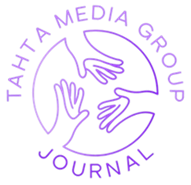Getting to Know Teacher Administration in Teaching and Learning Activities for Islamic Religious Education
DOI:
https://doi.org/10.55080/jpn.v4i2.201Keywords:
Teacher Administration, Teaching Activities, Islamic Religious EducationAbstract
This study aims to analyse the implementation of teacher administration and teaching and learning activities at SMP Negeri 5 Ponorogo, with a focus on the role of teachers in creating an effective learning environment. The qualitative research method uses an observational, interview, and documentation approach. The research subjects comprised Islamic Education (PAI) teachers in grade 8 with teaching experience at the school. Data analysis techniques involved processing information obtained from interviews and documents, which were then reviewed and developed according to the author's perspective. The research results indicate that mastery of teacher administration significantly influences the effectiveness of planning and implementing the learning agenda. Teachers who understand their duties and responsibilities better can plan lessons more effectively, thereby facilitating students' comprehension of the material. In conclusion, developing teachers' managerial skills is crucial for creating a conducive and effective learning environment, which ultimately positively impacts students' learning outcomes.
Downloads
References
Amalia, N. F. N., Fitriansyah, A., & Febriyanti, C. (2022). Sistem Administrasi Guru TPQ An-Nabaa Jakarta Timur Berbasis Java. Jurnal Riset Dan Aplikasi Mahasiswa Informatika (JRAMI), 3(04), 654–659. https://doi.org/10.30998/jrami.v3i04.4629
Arfandi, A., & Samsudin, M. A. (2021). Peran Guru Profesional Sebagai Fasilitator Dan Komunikator Dalam Kegiatan Belajar Mengajar. Edupedia : Jurnal Studi Pendidikan Dan Pedagogi Islam, 5(2), 37–45. https://doi.org/10.35316/edupedia.v5i2.1200
Basister, M. P., Petersson, J., & Baconguis, R. D. T. (2025). Educational innovations for an inclusive learning environment : insights from the teachers ’ collaboration through lesson study. Frontiers in Education. https://doi.org/10.3389/feduc.2025.1610749
Bhardwaj, V., Zhang, S., Tan, Y. Q., & Pandey, V. (2025). Redefining learning: student-centered strategies for academic and personal growth. Frontiers in Education, 10(February), 1–15. https://doi.org/10.3389/feduc.2025.1518602
Bhatia, R., Rinkey, R., & Kaur, J. (2024). NEP 2020: Transforming the Role of Teacher Educators. International Journal of All Research Education and Scientific Methods (IJARESM), 12(1), 269–275. https://www.academia.edu/114386048/NEP_2020_Transforming_the_Role_of_Teacher_Educators
Butler, N., & Spoelstra, S. (2025). Algorithmic management learning. Management Learning, 56(1), 132–139. https://doi.org/10.1177/13505076241279062
Cholid, I., Setiaji, B., & Waston, W. (2025). Exploring the Mediating Effect of Job Satisfaction of Teacher Salary and Loyalty on Teacher Performance in Muhammadiyah Schools in Samarinda. Journal of Lifestyle and SDGs Review, 5(2), e04322. https://doi.org/10.47172/2965-730x.sdgsreview.v5.n02.pe04322
Creswell, J. W. (2014). Research Design and Mixed Methods Quantitative. Qualitative, Approaches. In Awkward Dominion. https://doi.org/10.7591/9781501721144-016
Haleem, A., Javaid, M., Qadri, M. A., & Suman, R. (2022). Understanding the role of digital technologies in education: A review. Sustainable Operations and Computers, 3(May), 275–285. https://doi.org/10.1016/j.susoc.2022.05.004
Johnson, L. L., Adams, J., & Choi, C. (2025). Self-Leadership and Teacher Well-Being: An Internal Family Systems Informed Approach. International Journal of Teacher Leadership, 14(1), 32–61. https://www.cpp.edu/ceis/education/international-journal-teacher-leadership/documents/spring2025/johnson-et-al.pdf
Liu, J., Gao, J., & Arshad, M. H. (2025). Teacher-student relationships as a pathway to sustainable learning: Psychological insights on motivation and self-efficacy. Acta Psychologica, 254(February), 104788. https://doi.org/10.1016/j.actpsy.2025.104788
Özen, H., & Yıldırım, R. (2020). Teacher Perspectives on Classroom Management to Cite this Article : Teacher Perspectives on Classroom Management. International Journal of Contemporary Education Research, 7. https://doi.org/10.33200/ijcer.645818
Putra, J. E., Sobandi, A., & Aisah, A. (2024). The urgency of digital technology in education: a systematic literature review. Jurnal EDUCATIO: Jurnal Pendidikan Indonesia, 10(1), 224. https://doi.org/10.29210/1202423960
Rosenberg, A. R. (2025). Educational content selection in human rights education at the early childhood education and care level. JOURNAL OF SOCIAL SCIENCE EDUCATION, 24. https://doi.org/10.11576/jsse-7813
Setiawan, M., A. (2023). Tujuan Belajar dan Pembelajaran. In Uwais Inspirasi Indonesia (Issue March). Yayasan Kita Menulis. https://www.coursehero.com/file/52663366/Belajar-dan-Pembelajaran1-convertedpdf/
Sugiyono, D. (2016). Metode Penelitian Kuantitatif, Kualitatif, dan R&D.
Wang, F. (2024). The Relationship Between Students and Teachers and its Implications. Journal of Education, Humanities and Social Sciences, 29, 390–395. https://doi.org/10.54097/rzvpb402
Willems, J., & Andersson, F. O. (2025). Public Opinion on School Funding and Teacher Salaries: The Information Gap Explained? Educational Evaluation and Policy Analysis, 47(2), 624–635. https://doi.org/10.3102/01623737241232939
Zainiansyah, A., Afif, M. A., & Mislaini, M. (2025). Inovasi dalam Pendidikan : Pembelajaran dari Finlandia untuk Transformasi Pendidikan di Indonesia. Jurnal Yudistira : Publikasi Riset Ilmu Pendidikan Dan Bahasa, 3(1), 13–30. https://doi.org/10.61132/yudistira.v3i1.1409
Zulfatunnisa, S., & Lu’luil, M. (2022). Pentingnya Peran Guru dalam Proses Pembelajaran. Jurnal Gentala Pendidikan Dasar, 7(2), 199–213. https://doi.org/10.22437/gentala.v7i2.16603
Downloads
Published
How to Cite
Issue
Section
License
Copyright (c) 2025 Amelia Dwi Septianingrum, Ichwanudin

This work is licensed under a Creative Commons Attribution 4.0 International License.








